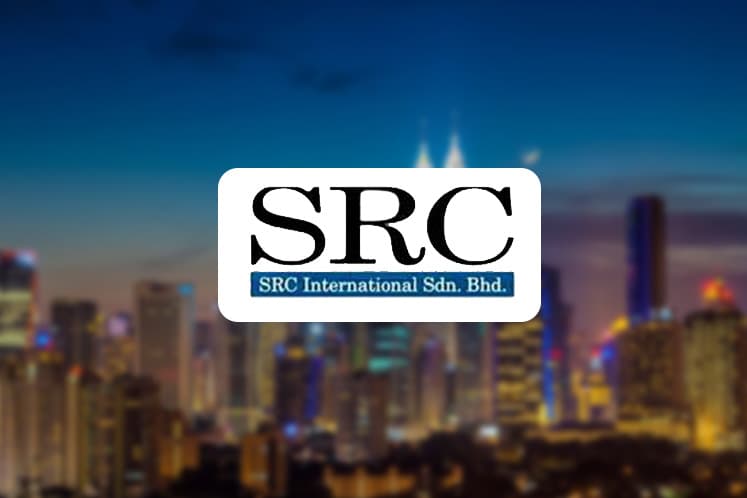
PUTRAJAYA (March 11): A lawyer representing former Prime Minister Datuk Seri Najib Abdul Razak in the SRC International Sdn Bhd case told the Court of Appeal today that a provision in the Malaysian Anti Corruption Commission Act 2009 (MACC Act), and another in the Anti Money Laundering, Anti Terrorism Financing and Proceeds from Unlawful Activities Act 2001 (AMLATFPUA), are not fair to his client.
Counsel Havinderjit Singh said Section 30 of the MACC Act and Section 40 of the AMLATFPUA allow the prosecution to withold any documents which can be accepted straight by the court without any question, but Section 51A of the Criminal Procedure Code (CPC), under which some documents had been given, requires the prosecution to give the documents to the defence.
"My client is faced with three charges under the Penal Code for criminal breach of trust, three more under money laundering and one under the MACC Act," he said in referring to the seven SRC International Sdn Bhd charges Najib is facing.
"However these sections in the MACC Act and the AMLATFPUA, allows the prosecution to withhold such documents from the defence, and this could be produced in court as evidence without giving us time to scrutinise it. It will be unfair for the defence," he said.
Havinderjit, who appeared with senior lawyer Tan Sri Muhammad Shafee Abdullah, was submitting on Najib's appeal over four decisions made by High Court judge Mohd Nazlan Mohd Ghazali, before a three-member panel led by Justice Datuk Zabariah Mohd Yusof.
The others members are Justice Datuk Rhodzariah Bujang and Justice Datuk Lau Bee Lan.
The decision made by Nazlan includes not allowing the defence from getting further documents from the prosecution with regards to the SRC case.
The lawyer said that this is the first time that Section 30 of the MACC Act, and Section 40 of the AMLATFPUA are being scrutnised and questioned as being unfair in the administration of justice.
Havinderjit further pointed out that to make matters worse for his client, Section 62 of the MACC Act requires him to state his defence before the proceedings start.
"This is again injustice to my client as he has to say his defence before the trial or be liable to take action against, and now with the two sections, he could not get all documents to prepare his proper defence.
"How do we know that the documents which they do not want to give can be used in our defence. Hence this is unfair for the defence," he said.
Havinderjit added Nazlan did not allow the application for fear of witness tampering, but said as he received 26 witness statements from the prosecution under Section 51A of the CPC, Najib did not ask to see any of them
Another area Najib is appealing was the High Court's decision not to allow a gag order on the media and public to refrain them from discussing the merits of the case.
Shafee said the court should play the role of preventing sub judice statements from being issued by the people and the media, be it the traditional or alternative media.
The senior lawyer said while Nazlan had dismissed the application for a gag order, in his written judgment it seemed that he supports the gag order.
"If the attorney general (Tommy Thomas) doesn't want to do it (apply for a gag order) , the court must step into the role by culling the words from the judgment so it could be applied to the public and media," he said.
Havinderjit added that out of 100 plus paragraphs in Nazlan's judgment there are five or six paragraphs where the court seemed to be in agreement with the gag order.
He said that while the judge disallowed the gag order, his judgment appears to support it and that is what the defence wanted.
The lawyer further cited the United Kingdom attorney general giving an advisory note to the media and public on how to describe an accused person (who was allegedly involved in a terrorist crime), and went on to ask why this could not be done in Malaysia.
Thomas who led the prosecution said the court should recognise that in the memorandum of appeal filed by Najib, the ex-premier was appealing the whole decision on the gag order but now his lawters are saying otherwise.
"We are here to defend the judgment and say it is the right decision as we do not have a jury trial. Hence, the judge won't be influenced," he said.
"You cannot use only a portion of the judgment to support your case as the judgment had to be seen in its entirety," he said.
Furthermore, Thomas said that there are ample laws to deal with the matter, including the defamation law.
Besides getting more documents, and the gag order, Najib is also appealing the fiat (authority) granted by the Attorney General's Chambers to senior lawyer Datuk Sulaiman Abdullah to lead the prosecution team, where Thomas argued that the the AGC had a right not to disclose details of the appointment but pointed out that Sulaiman was appointed pro-bono (for free).
Najib is also appealing the manner the SRC case was transferred from the Sessions Court to the High Court.
The hearing of Najib's appeal continues tomorrow.